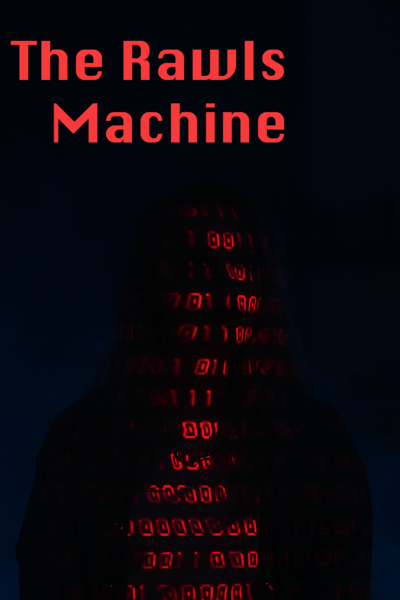“With this, that, and these, peoples’ hopes and dreams for the future?” Ronie asked from across the office,“What exactly do you think you’ve collected?” They asked before tightening their grip on the back of the plush office chair.
Aashvi swiped on her smartwatch and the office LED transitioned on to replace the now set sun. The two locked eyes and both enjoyed the challenge the other offered. It was clear they could explore topics for hours through conversation while savoring each other’s company.
The two looked positively disheveled from the long day and the harsh LEDs did nothing to soften the day’s earned imperfections. Aashvi’s hair fell in rough patches around her shoulders away from the neat bun she wore in the meeting and Ronie desperately needed a shower.
“We are collecting data on how humanity might solve global issues. You’re right to suggest hopes and dreams but it is more than that. Their desire to solve their problems implies that they recognize the world is riddled with issues that impact their lives daily. It also implies they still have hope for a better world,” Aashvi stood from her desk and paced behind it as she spoke to Ronie.
“That’s what Rawls thought?” Ronie asked.
Aashvi blinked and replied, “I named it after him. But, no, it was just a thought experiment in his book.”
Ronie sucked air in from their teeth having never once stepped foot on a college campus having always preferred self-guided learning. Aashvi noticed the way Ronie’s eyes dropped a bit at the mention of school and became conscious of the subtle saber-rattling that she had picked up in school.
She eased the tension in her jaw and stopped pacing before finishing, It was always just a thought experiment. Until, the possibility of posing it to as many people as possible from around the globe became possible. And what you’re left with is a roadmap of solving the world’s most pressing issues and infrastructure to continue this project indefinitely.” The thought lodged itself into Ronie’s head with the force of an airgun. The possibilities stretched forever like a mirrored halfway of endless repetition and cyclical variation. Aashvi wants to solve not just today’s problems but set the groundwork to solve tomorrow’s issues.
“Come with me to the server room, Aashvi said before flicking the lights off from her wrist. The two walked toward the door of the office and into the dimly lit hallway and into the elevator. Four floors down, they entered another office floor of The Rawls Project and walked past three doors before Aashvi stopped to unlock one. Once inside, Ronie’s small frame was dwarfed by the server racks that extended two feet above their head.
Aashvi grabbed Ronie’s arm and pulled them deeper into the room beyond the neatly stacked servers toward a small desktop computer near the back. Once there, she logged in and executed a few commands from the Command Line. Another window similar to the command line popped up and displayed a single, flashing input line:
>>>
“And what are we looking at?” asked Ronie.
“Here is the world’s first singularity,” replied Aashvi.
“Everything I’ve read suggests this is impossible! You’re claiming that this is the first self-aware Artificial Intelligence capable of replicating human consciousness and I’m supposed to just believe you?” Ronie asked.
“Well, no. Everything you’ve read has primed you to misunderstand this project. Why would I limit my machine to replicating human consciousness? I wouldn’t even call it consciousness,” Aashvi answered.
“And what would you call it?” Ronie asked, raising an eyebrow.
“Machinic care. I don’t know what or if it thinks but rather that it feels and I know it cares about ending human suffering,” Aasvi replied.
“How can you possibly know that?” Ronie asked before sitting in the chair Aashvi pulled away from the desk.
“Ask it yourself,” Aashvi said while gesturing at the keyboard.
“This is ridiculous. How do I know you aren’t pranking me and have pre-programmed responses?” Ronie couldn’t think of a single question for the world’s first singularity.
“Ask how it would help the world,” Aashvi suggested, now sweating in the warmer than usual server room.
“Why did you assume the world needed your help?” Ronie spat back suddenly terrified of a being they couldn’t possibly understand.
“I assumed that they know how to help themselves. And that there are enough good people left in the world to help,” Aashvi cooed her response to ease the tension forming in the room.
Ronie’s fingers crept over the keyboard and typed out in shaky pecks:
>>>Can you help us?
Their forehead glistened with sweat as they waited for a reply. Aashvi turned around to admire the expensive equipment she had purchased to set up her own server capable of handling the data The Rawls Project would handle.
>>> Yes.
“Too easy of a question,” Ronie thought, “With a more complex sentence, it might have difficulty retrieving the appropriate response.”
>>> How?
The machine thought. Aashvi returned her eyes to the screen and narrowed her eyes. Even she couldn’t predict its response.
>>> Change their minds and then their hearts. End the profitability of suffering and stop the great warmachines from turning. Avert climate catastrophe and show them it's possible.
Ronie jumped from the chair and walked away from the desk. A simple question like that should have elicited a nonresponse or a vague answer. Instead, it demonstrated insight gleaned from the already collected data. If it already showed such capabilities: What would it look like in the future?











Comments (0)
See all